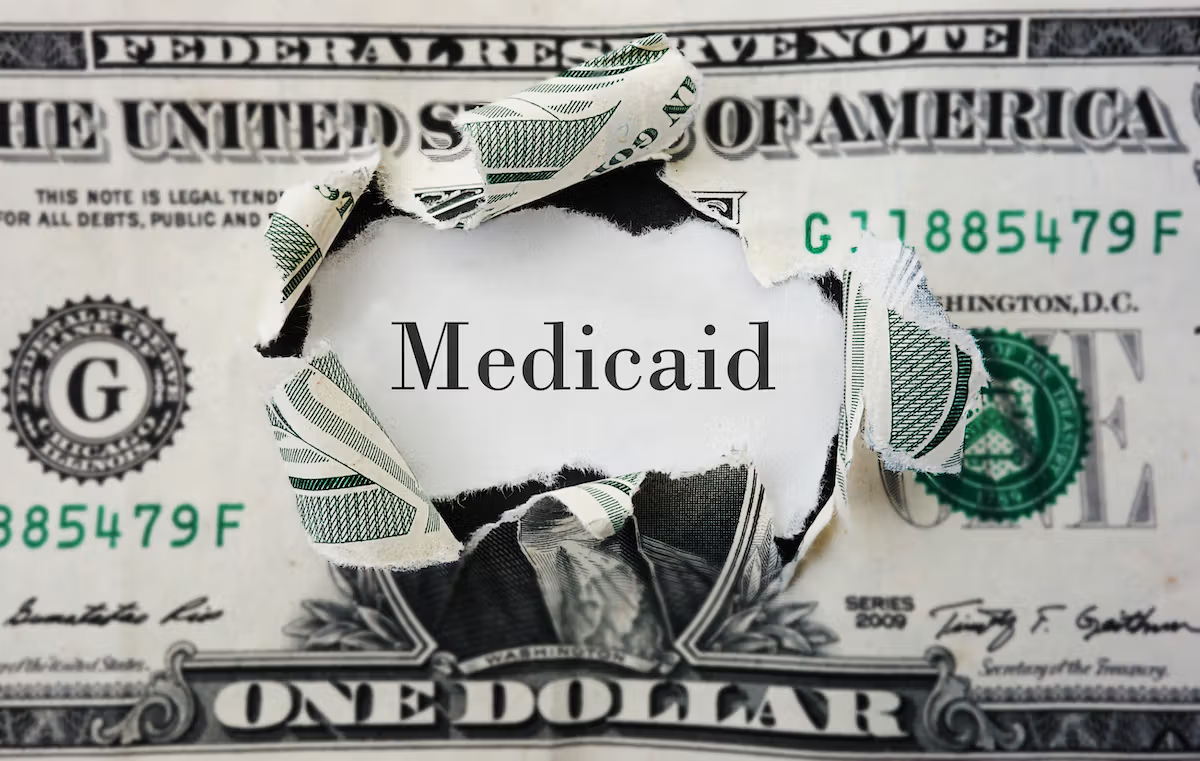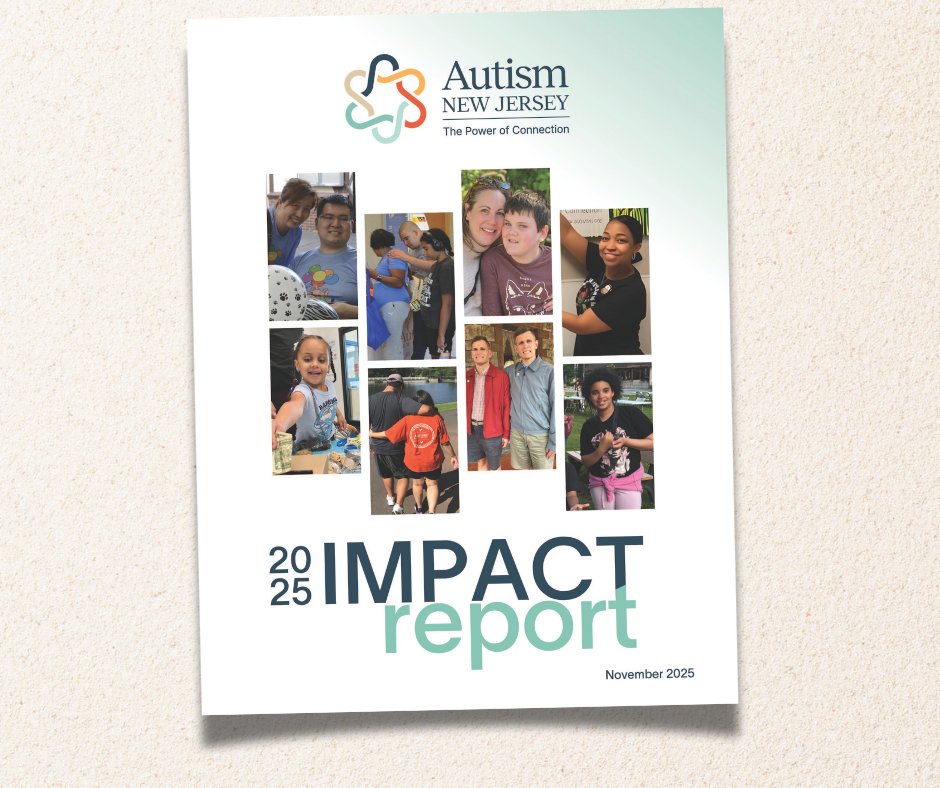
As previously reported, President Trump signed the One Big Beautiful Bill Act (H.R.1) into law on July 4th, 2025 which makes a number of changes to Medicaid. These changes may impact New Jersey Medicaid (NJ FamilyCare) members who are autistic and the Medicaid providers who administer services to these members. The impact of H.R.1 will depend on the type and level of services individuals with autism utilize.
It is estimated that the changes to Medicaid will result in:
- 350,000 eligible New Jersey residents losing healthcare coverage because of bureaucratic barriers
- $3.3 billion annual cut to New Jersey hospitals and public health
- $360 million annual cut to the state budget due to reductions in federal funding and provider assessments
Currently, the New Jersey Department of Human Services and its Division of Medical Assistance and Health Services – also known as Medicaid – are reviewing the effects of H.R.1 and are developing policies on how the state will comply with the new law. It is unclear at this time whether the state administration or the legislature plan on addressing the Medicaid funding gap.
We realize this can be dizzying and overwhelming, with the very foundation of Medicaid at stake. To help you cut through the noise, below you will find two main sections, one titled “Individuals with Autism” and the other titled “Providers and Administrators.” This is based on our own analysis and understanding of H.R.1.
(Throughout the provisions you will see mentioning of the ACA expansion group. This is a category of people who became eligible for Medicaid under the Affordable Care Act (ACA). Under the ACA, states were given the option to expand Medicaid to nearly all adults with incomes up to 138% of the federal poverty level. New Jersey is one of these expansion states.)
Individuals with Autism
This table summarizes provisions that impact individuals receiving services through DDD.
| Retroactive coverage | Reduced from 3 to 2 months |
| Immigrant eligibility | Fewer immigrants qualify |
| Work requirements | None |
| Eligibility redetermination | None |
| Cost sharing | None |
Retroactive Coverage
Currently, new Medicaid enrollees are eligible for three months of retroactive coverage which includes unpaid medical bills from 90 days preceding the date of application submission.
Effective January 1, 2027, the retroactive eligibility period is reduced to one month for Medicaid recipients in the ACA expansion group and two months for all other Medicaid recipients.
Likely impact to New Jersey includes increased medical debt with additional burdens on beneficiaries and providers.
Immigrant Eligibility
Currently, certain groups of non-citizen immigrants are eligible for full Medicaid benefits:
- Legal Permanent Residents
- Refugees
- Individuals granted asylum
- Cuban/Haitian entrants
- Victims of domestic violence, applying under the Violence Against Women Act
- Trafficking victims
- Temporary humanitarian parolees
- Compact of Free Association migrants (from certain Pacific Island nations)
Effective October 1, 2026, only Legal Permanent Residents, Cuban/Haitian entrants, and Compact of Free Association migrants (from certain Pacific Island nations) will qualify for Medicaid.
Likely impact to New Jersey includes 15,000 to 25,000 immigrants losing Medicaid coverage.
Work Requirements
Currently, individuals are not required to participate in any kind of work or activities to be eligible for and to continue receiving Medicaid benefits.
Effective no later than December 31, 2026 (can be extended until December 31, 2028 at the discretion of the federal government), all working age adults between the ages of 19 – 64 enrolled in the ACA expansion group must complete at least 80 hours of community engagement per month to qualify for Medicaid. Community engagement includes work, community service, or school.
Exemptions from the rule include individuals with a physical, intellectual, or developmental disability that significantly impairs their ability to perform one or more activities of daily living as well as parents, guardians, and caretakers of individuals under 14 or with a disability.
Likely impact to New Jersey includes up to 300,000 individuals losing or failing to obtain Medicaid coverage due to difficulties producing required documentation.
Eligibility Redetermination
Currently, redetermination occurs once every 12 months for all Medicaid recipients. Redetermination is the process by which states verify whether people still qualify for Medicaid coverage.
Effective December 31, 2026, eligibility of Medicaid recipients in the ACA expansion group will be redetermined once every six months. Redetermination for individuals receiving DDD services will continue to occur once every 12 months.
Likely impact to New Jersey includes up to 50,000 individuals losing Medicaid coverage due to the inability to prove eligibility every six months.
Cost Sharing
Currently, most Medicaid recipients are not required to pay co-pays to access care. Co-pays are fixed amounts paid out of pocket for specific medical services or prescriptions.
Effective October 1, 2028, Medicaid recipients in the ACA expansion group with incomes between 100% and 138% of the Federal Poverty Level will be required to pay co-pays of up to $35 per service without exceeding 5% of an individual’s family income.
In New Jersey, these income levels range from $1,800 monthly for a household size of one to $3,698 monthly for a household size of four. Exempt services to this rule include primary care, prenatal care, pediatric care, emergency care, and care delivered in a Federally Qualified Health Center or Certified Community Behavioral Health Clinic
Likely impact to New Jersey includes routine healthcare services utilized less from beneficiaries.
Providers and Administrators
This table summarizes provisions that impact Medicaid providers and administrators.
| Provider Taxes | Less funding for services |
| State-Directed Payments | Less incentive to improve of care |
| Emergency Medicaid | Less funding for emergency services |
| Budget Neutrality for 1115 Waivers | Additional barrier in approval process |
| Good Faith Waivers | Increases amount state is required to pay back |
Provider Taxes
Currently, New Jersey imposes a provider tax on health care providers and managed care organizations (health plans that manage Medicaid benefits) to help fund Medicaid. The provider tax rate in New Jersey is 6%.
Effective now, establishing new provider taxes is prohibited, and existing provider tax rates cannot be increased and are reduced by 0.5% annually until they reach 3.5%.
Likely impact to New Jersey includes billions of dollars lost in federal revenue over several years.
State-Directed Payments
Currently, states may use state-directed payments to require managed care organizations to pay providers certain rates, make uniform rate increases, or to use certain payment methods. In New Jersey, managed care organizations are required to make these directed payments to providers to incentivize high quality care and support training for new providers and safety net providers.
Effective now, there is a new cap on total provider reimbursement under state-directed payments which is set at 100% of Medicare rates. New directed payments must comply with the cap now and existing state-directed payments are reduced by 10% each year until they comply with the cap.
Likely impact to New Jersey includes loss of funding for providers, with hospitals taking the biggest hit, which reduces an incentive to improve care.
Emergency Medicaid
Currently, the federal share for emergency Medicaid is equal to a typical individual who qualifies for Medicaid benefits. Emergency Medicaid reimburses hospitals for the costs of emergency care provided to immigrants who would qualify for Medicaid but are not qualified due to their immigration status.
Effective October 1, 2026, the federal financial share for emergency Medicaid is reduced to the state’s base rate. In New Jersey, this rate will go from 90% to 50%.
Likely impact to New Jersey includes a loss of $46 million in annual federal funding for emergency Medicaid due to the lower match rate.
Budget Neutrality for 1115 Waivers
Currently, under Section 1115 demonstration waivers, states can bypass standard Medicaid rules which allow flexibility to design and improve Medicaid programs such as DDD’s Community Care Program and Supports Program. The waivers must be budget neutral, meaning they are not expected to result in an increase in federal expenditures compared to federal expenditures without the waiver. Large parts of New Jersey’s Medicaid program operate using this waiver.
The waiver approval process involves a multi-tiered internal review within the Centers for Medicare & Medicaid Services. The final sign-off comes from the Centers for Medicare & Medicaid Services Administrator.
Effective January 1, 2027, demonstrations are not to be approved unless they are certified as budget neutral by the Chief Actuary of the Centers for Medicare & Medicaid Services, adding another layer of scrutiny and oversight.
Likely impact to New Jersey includes delays or prevention of renewal of certain demonstration elements.
Good Faith Waivers
Currently, states must repay funds for error rates above 3% to the federal government. These errors are uncovered through audits from the Centers for Medicare & Medicaid Services and are meant to identify erroneous payments made for ineligible individuals and overpayments for eligible individuals. The federal government grants good faith waivers if the state takes corrective action to get below the 3%, so the state is exempt from repaying.
Effective October 1, 2029, there will be a reduction in the amount of erroneous excess payments that can be waived by the Centers for Medicare & Medicaid. The definition of improper payments will also include payments where insufficient information is available to confirm eligibility.
Likely impact to New Jersey includes loss of federal funds depending on how the new requirements are implemented.
We know many in our community are confused about how they will be impacted by these new federal laws. We’re in regular communication with state leaders as they seek clarification on these substantial and complex changes and make decisions that will determine how these new federal laws will play out in New Jersey. We want to know what policy-related questions you have, so we can ask for clarification from state leaders, and provide you, our community, with answers as we find them. Email our Public Policy team at publicpolicy@autismnj.org or call our 800.4.AUTISM Helpline.
Read Autism New Jersey’s previous statement regarding ongoing federal actions.









